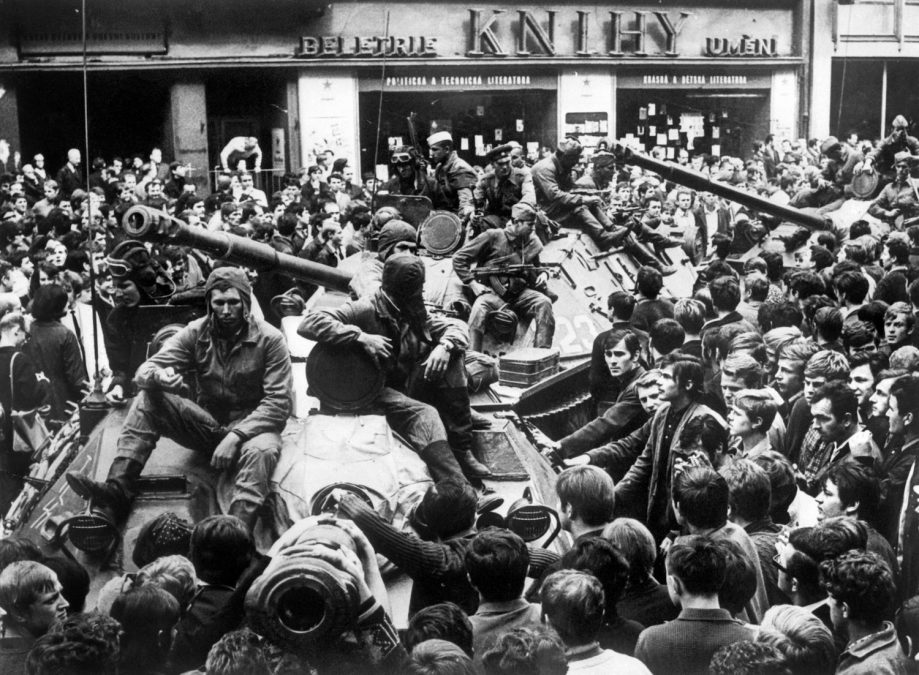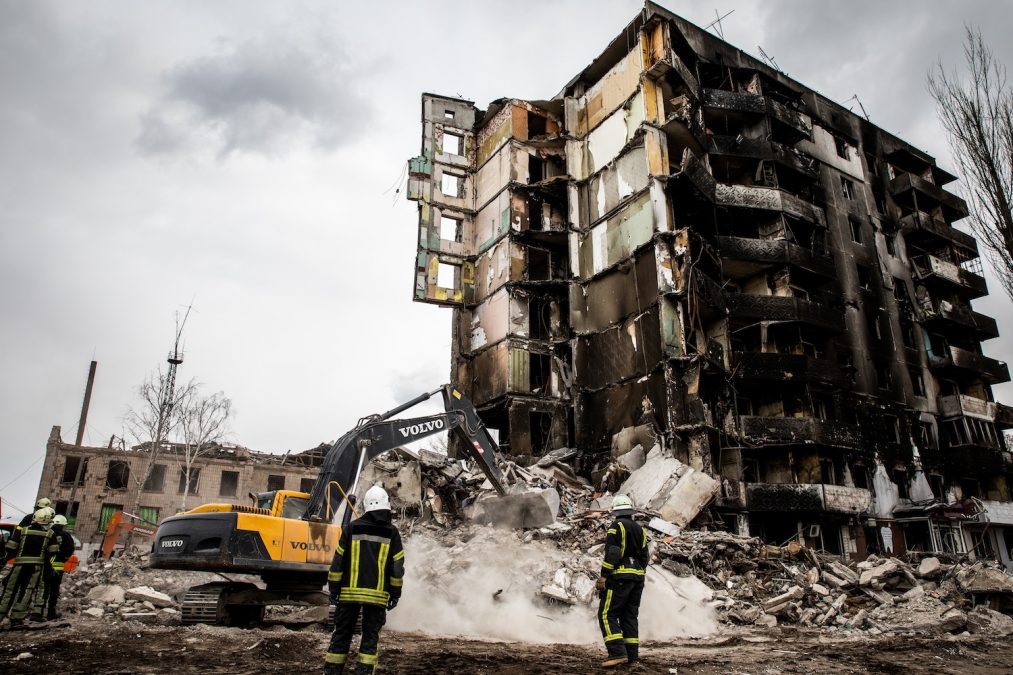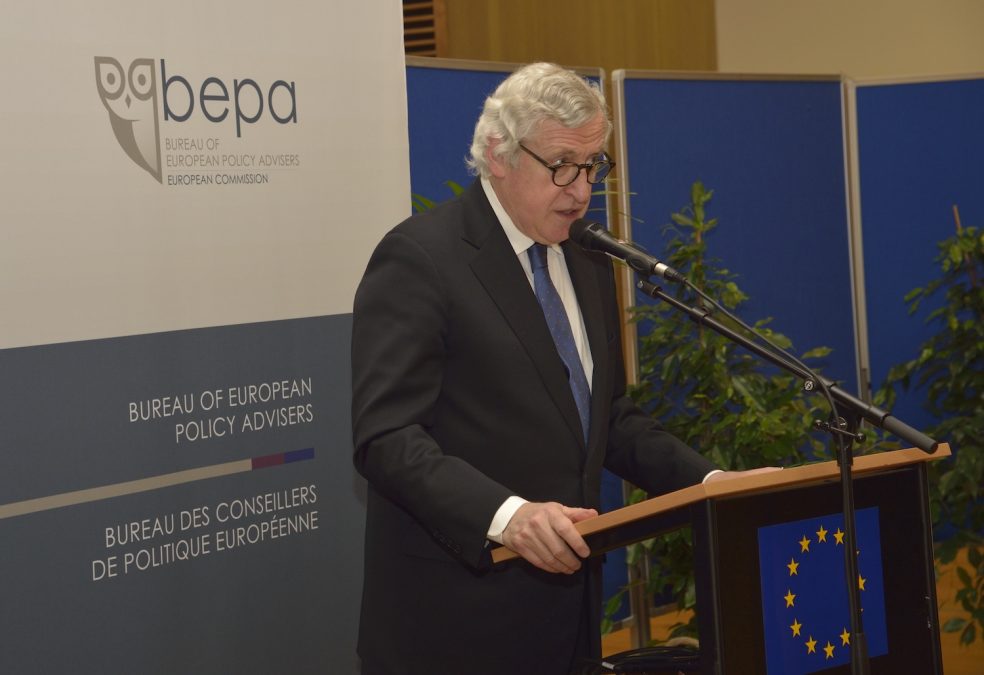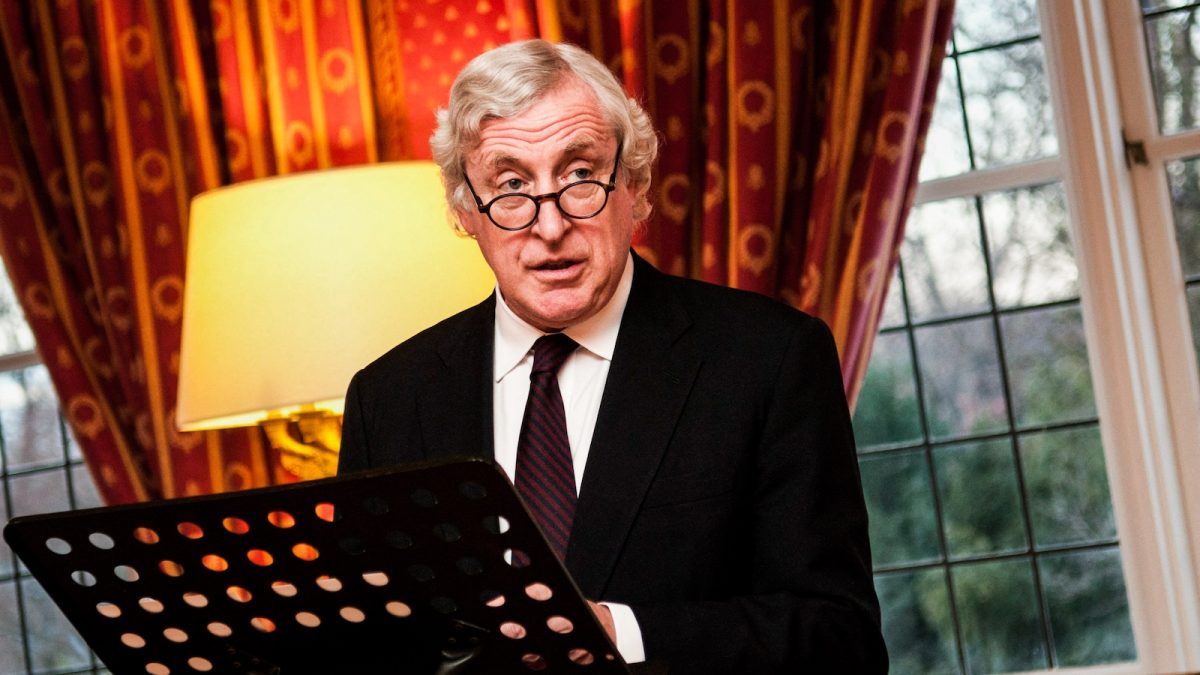“Central Europe understands Russian realities better than we Westerners do”, French top diplomat tells Válasz Online
In early December, Emmanuel Macron said that Russia sees NATO enlargement as a threat and needs “security guarantees” to bring her back to the negotiating table. The French president’s words were sharply criticized by Poland and the Baltic states. To make sense of the situation, Válasz Online calls on one of the most competent people in the field: a top French diplomat, Pierre Vimont, who has long been Macron’s éminence grise on Russia. From 2019, he has been trying to reach a behind-the-scenes agreement with his Russian partners on new European security arrangements. He is very familiar with the Moscow mindset as his father served as an ambassador to the Soviet Union. He considers the use of nuclear weapons unlikely and, although he believes that the Russian military is committing war crimes in Ukraine, yet claims that the West should negotiate with the leadership. Interview.
One of the first Western casualties of the Russian aggression in Ukraine was your mandate: on 24th February 2022, your position as Special Envoy for the architecture of security and trust with Russia was terminated. Are you disappointed that your work may have been for nothing?
Not at all. We had to try to have a dialogue at least. My work had two dimensions: on one hand, we worked on improving Franco-Russian bilateral relations, having made some achievements. On the other hand, Emmanuel Macron wanted to rethink the European security arrangement and he believed that Russia had a major role in it. Here we quickly ran into obstacles because the Russians were intransigent on a number of issues. Moreover, not long after the launch of the dialogue in 2019, the pandemic broke out making it difficult to move forward without face-to-face meetings.
For years, Poland and the Baltic states have been warning France and Germany that Moscow views dialogue as a sign of weakness and aims to rebuild its former empire, by force if necessary. Why have you not listened to them?
I do hear this argument a lot from our Central European friends and I must admit that countries in your region often have a better understanding of Russian realities because of their history and geography than we Western Europeans do. However, what does bother me about this argument is that it deems any dialogue with Russia superfluous. If we accept this, then we must ask ourselves what we Europeans are going to do about Russia?
We all hope that the war will end in Ukraine’s favor but Russia will still remain on the EU’s borders and long-term stability and peace are unthinkable without negotiating with Moscow.
President Macron is often criticized for continuing to talk to Vladimir Putin but it is necessary. Without behind-the-scenes talks, it would be impossible to free prisoners or seal the deal on Ukrainian grain exports through the Black Sea. Without the latter, there would be famine in the Middle East and Africa, for example.
Your father knew Russia well as ambassador to the Soviet Union from 1973 to 1976. Do you see any parallels between the Cold War and the current situation?
It is difficult to compare the two periods. My father served in Moscow in the years following the crushing of the Prague Spring when the Brezhnev doctrine of “limited sovereignty” was in effect. Historians try to find similarities but Russia today is more advanced than the Soviet Union of that time and the political system is different too. That is why I am cautious to make a snap judgment. But the fact is that when the Soviet system collapsed, both East and West made mistakes. Perhaps the roots of today’s conflict go back to the late 1990s and early 2000s. Perhaps we should have approached the question of stability in Europe differently. We decided then that the Helsinki Agreement of 1975 was an appropriate post-Cold War arrangement but it probably should have been updated. However, we did not do that work.

Do we read you correctly that you consider NATO’s enlargement to the East a mistake? In the 1990s, Central European leaders thought that Russia was only temporarily weakened and that they would be better under the American aegis before the former superpower regained its strength. Recent events have demonstrated that they were right.
It is the right of every sovereign state to decide on its own alliances and I therefore consider the expansion of NATO at that time to be legitimate. However, geopolitical context should have been considered too. Perhaps Russia’s fears about enlargement should have been taken more seriously. We did have a NATO–Russia agreement and we did sign bilateral agreements but these good intentions slowly died out for want of political will. As it is often the case in international relations, sheer routine and political interests replace strategic thinking, often leading to misperceptions. One of the most striking impressions I had in my dealings with Russian leaders was their deep fear of threats from the West and we need to understand this even if Russia is clearly the aggressor in the current war.
How would you end this conflict which has been going on for eight years?
The fighting has been going on since 2014 although until February this year, the conflict in Eastern Ukraine was mainly a standoff. At the time, I was involved in the drafting of the Minsk agreements. Even then, the problem was that deep mistrust between Russia and Ukraine made it impossible to make any meaningful progress. Whatever we may think of the Minsk agreements, at least it existed and provided a framework for negotiations – today we don’t even have something like this. It is impossible to end a war without negotiations but we are now a long way from resolving the conflict. The Ukrainians are retaking territory while the Russians are adding to the suffering and despair of Ukrainian citizens by attacking civilian infrastructure.
Getting a ceasefire is a hard nut to crack because the Ukrainians are telling us that they accepted the disadvantageous Minsk agreements for the sake of peace but Russia still invaded.
In their view, if their military superiority is not fully apparent, the guns might remain silent but after a few years of gathering strength, Russia will attack again.
Could Ukrainian ambitions go as far as recapturing Crimea?
President Zelensky recently told the Financial Times that if a non-military solution to Crimea is proposed, he will consider it. At the same time, we will have to find a solution for the territories in Eastern Ukraine that Russia has illegally seized and annexed.
Do you agree with the European Parliament’s resolution that Russia is a “state sponsor of terrorism” because of the attacks on the Ukrainian population?
I don’t want to get entangled in a debate of definitions but international law clearly prohibits attacks targeting civilian infrastructure and water, gas and electricity supply. Already the very act of starting a war is clearly contrary to the UN Charter and to the universally accepted principle of territorial integrity and sovereignty. In addition, the Russian army has committed war crimes which we have seen clear evidence for. So the situation is unacceptable, yet I believe we must use the tools of diplomacy because there is no other way.
You know the mindset of Russian leaders. Should we fear the use of nuclear weapons?
Recently, President Putin admitted that even the use of tactical nuclear weapons would not make much sense, as it would not fundamentally change the balance of power on the battlefield. Moreover, we can be sure that the consequences for Russia of using nuclear weapons would be very grave. It is right that the West signals to the Russians – without going into details – that the use of nuclear weapons is unacceptable and will have serious consequences. Deterrence is part of the strategic uncertainty which must be asserted against an aggressor state.

Do morals and values play a role in international relations at all? Or is the American political scientist, John Mearsheimer, and others like him right to argue that in international relations only interests and force matter, the point of view of which Russia’s action is legitimate?
After the Second World War, we established an international legal system embodied in the UN Charter which enshrines the sovereignty and territorial integrity of states. This is an important achievement that we must defend with all our might. Additionally, the Western democracies have certain values and it is legitimate to want to protect and promote them. However, everyday diplomacy, which has the important task of preserving peace and preventing war, presupposes a different way of thinking, not necessarily in sync with morality. Diplomacy is much more practical than the world of morality which is why I believe that the two should not be mixed. We may have values that we protect but we must not forget that those on the other side of the table may also have equally legitimate values. That is why general moral issues must not be at the heart of discussions on such sensitive issues as war and peace, otherwise we cannot move forward.
You visited Egypt in 2012 as Executive Secretary-General of the European External Action Service. You have recalled how surprised you were by the fervour with which your local negotiating partners rejected “European values” and “Western lecturing”. How can the post-Second World War international order designed by the United States be maintained when China or Russia place themselves outside that order?
The most important thing is that we must talk to everyone and not get stuck in our own preconceptions and prejudices. We need to be aware of the world we live in and settle our differences with our partners one by one. If we sit down to negotiate having grand principles and a lot of criticism, only a dialogue of the deaf will ensue. The international order of the last 80 years has had many faults but one of the main beneficiaries has been China, which in just a few decades has risen from poverty to become one of the world’s superpowers. The roots of world order since the Second World War go back to the 1648 Treaty of Westphalia, which was the first to recognize the right of nations so we are talking about centuries-old foundations.
We do need to build a new order but it cannot be based on brute force, as we hear from Moscow and Beijing, because that would result in even more chaos and even greater neglect of the interests of smaller states.
At the end of February, the Kenyan Ambassador made a very remarkable speech at the UN Security Council on the conflict in Ukraine. Turning to his Russian counterpart, he said that all the newly independent African countries had asked themselves whether they should retain the borders they inherited from the French, British and Belgian colonialists. In the end, the ambassador said, they viewed the question as a Pandora’s box. It was therefore wiser to accept the imperfect borders inherited from the colonialists. I think this was a very wise speech which could also form a basis of a settlement in Ukraine. In fact, the Russians are challenging the borders that everyone, including themselves, agreed on at the end of the Cold War, including in the Budapest Memorandum of 1994.
| Pierre Vimont joined the French Ministry of Foreign Affairs after graduating from elite schools. After several important diplomatic assignments, he was the ambassador and permanent representative of France at the European Union from 1999 to 2002 then Chief of Staff to three successive Foreign Ministers. From 2007 to 2010, he served as his country’s ambassador in Washington and from 2012 to 2015 he was Executive Secretary-General of the European External Action Service, the EU’s diplomatic arm. From 2019 to 2022, he served as Special Envoy for Russia to President Emmanuel Macron. He is currently a Senior Fellow at the Carnegie Center for Europe, a US think tank, and a visiting lecturer at US universities. |
Your father – at the start of his career – experienced the diplomatic deadlocks leading up to the Second World War. Don’t you have similar feelings now, and not only about Russia but also about Taiwan and China?
We all worry about the war escalating, but we must keep calm and avoid being too pessimistic. This summer, tension between the US and China rose over visits by US politicians, with strong statements from both sides. However, a few days ago in Bali, President Biden’s meeting with Secretary General Xi Jinping demonstrated that both countries are aiming to reduce that tension. State Secretary Blinken is going to visit Beijing in the near future, so we must keep our hopes alive that both countries will be wise enough to avoid escalation.

Regarding the war, the EU is commonly criticized for its inability to act effectively. You know the EU system inside out. Why is it so impotent?
The EU is unique. It was created by sovereign states who gave up some of their sovereignty to protect their common interests. The anti-EU forces ring alarms about the creation of a European superstate and the removal of national sovereignty but these claims are absurd. Having worked in Brussels for years, I am well aware of the fundamental role of nation states in the system. There is never a day when experts, ambassadors and ministers representing 27 nations do not sit down together to discuss the texts put forward by the Commission. During the negotiations, everyone has the right to disagree with a proposal and refuse to vote for it unless their national interests are taken into account. This is the reality of the European Union.
The notion that there is a big, mysterious, bureaucratic machinery in Brussels that is intruding on nation states and deciding everything for them is completely wrong.
At the same time, there is a growing sense in member states that the EU should be equipped with adequate instruments to protect their industrial and technological interests. More and more people are realizing that if we Europeans are unable to defend our common interests, we are condemning ourselves to a slow process of decline. European companies tell their governments every day that they need European investment and development so that we do not depend on the Americans or the Chinese. We have already realized this but we the French are doing it our own way. A bit arrogantly. We expect everyone to follow us but I think it is better to listen to others. Emmanuel Macron has often been criticized for wanting to strengthen Europe’s common defence capabilities because, according to the critics, we want to break away from our American allies. Yet even in the midst of the war in Ukraine, according to a recent US national security strategy announcement, the Americans say their biggest rival is China. Washington itself is calling on us to do more to defend the continent against the Russians. There is no question of breaking away from NATO but it is up to us Europeans to establish European defence.
You were the model for the powerful éminence grise in the comedy “The French Minister”. The film portrays the hilariously chaotic daily life of the Foreign Ministry in France. Is the world of diplomacy really that chaotic?
I cannot reveal state secrets. Instead, let me quote my former boss, Dominique de Villepin, who was the model for the main character, the minister. When asked about his opinion on the film, he said the reality was even worse.
Translated by Gergely Papp
Cover picture: Pierre Vimont speaks during the presentation of the Officier Award to Chesley Sullenberger at the French Ambassador’s Residence on December 17, 2010 in Washington, DC (photo by Getty Images/AFP/Kris Connor)







